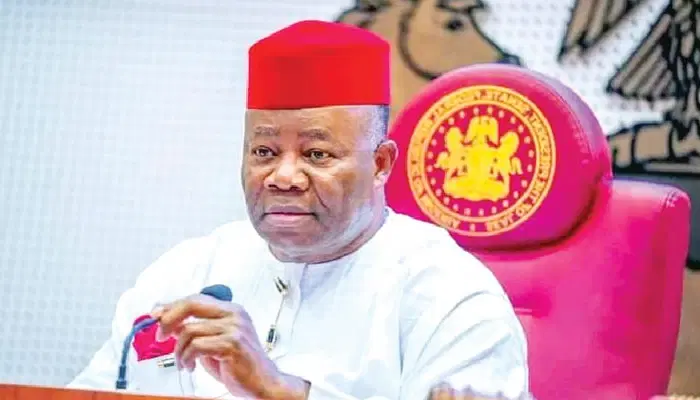
Senate President Godswill Akpabio came under intense criticism yesterday from the Nigeria Labour Congress (NLC), Trade Union Congress (TUC), and the Nigeria Employers’ Consultative Association (NECA) over his recent remarks that only 30% of Nigerians pay taxes but still expect more from the government.
Akpabio made the statement while declaring open a two-day public hearing on the contentious tax reform bills organized by the Senate in Abuja. During his speech, he emphasized that tax reforms represent the future of Nigeria and must be implemented correctly.
However, his comments drew immediate backlash from major labor unions and business groups, who argued that poor tax compliance in Nigeria is largely due to the government’s lack of accountability and transparency in the use of public funds.
Labor Unions Slam Akpabio Over Tax Remarks
Reacting to Akpabio’s comments, an official of the NLC, who spoke on condition of anonymity, criticized the Senate President for making sweeping statements without addressing the root causes of tax evasion in the country.
“Akpabio, like many politicians, talks before he thinks. With the huge revenue accruing from oil and other natural resources, there has been nothing to show for it, except that government officials live flamboyantly at the expense of Nigerian people,” the NLC official said.
He argued that Nigerians are unwilling to pay taxes because they see little to no positive impact of government spending on their daily lives. “You cannot tax poverty but wealth. A government that is unaccountable does not expect its citizens to willingly contribute their hard-earned resources. People will only pay taxes when they see the government using the money to improve their lives,” he added.
The NLC further stated that while poor workers pay taxes directly deducted from their salaries, the wealthy often find ways to evade tax obligations.
TUC Challenges Akpabio to Name Tax Evaders
The Trade Union Congress (TUC) also criticized Akpabio’s claims, questioning the source of his data on tax compliance. TUC Deputy President Dr. Tommy Okon challenged the Senate President to publicly name those who evade taxes.
“We do not know where he got his facts from in a country where there is a dearth of data. If only 30% of Nigerians pay taxes, how come the Federal Inland Revenue Service (FIRS) always surpasses its set targets?” Okon asked.
He argued that ordinary Nigerian workers have borne the brunt of taxation, while the wealthy and influential often evade their tax responsibilities. “This government has taxed the masses enough. It is even the wealthy few that evade tax, not the workers whose taxes are deducted from the source,” Okon stated.
Okon also criticized the timing and manner of Akpabio’s remarks, saying that elected officials should focus on improving governance rather than blaming citizens. “When they were campaigning for office, taxation wasn’t a condition for promising good governance. Such statements should not come from the legislative arm of government, which should be focused on enacting laws for the benefit of the people,” he said.
NECA Blames Government for Poor Tax Compliance
The Nigeria Employers’ Consultative Association (NECA) echoed similar concerns, highlighting the government’s role in the widespread tax evasion problem. NECA’s Director-General, Adewale-Smatt Oyerinde, argued that citizens are discouraged from paying taxes due to a lack of visible benefits.
“It is not far from the truth that the majority of Nigerians don’t pay tax, but the government has been culpable in giving citizens reasons not to. When taxpayers do not see the benefits of their contributions, they are less inclined to comply,” Oyerinde said.
He emphasized the need for the government to implement measures that would ensure transparency and accountability in tax collection and spending. “While we align with the new tax reforms and the need to improve tax collection efficiency, there must also be mechanisms in place to make the government accountable for the taxes collected,” he added.
Akpabio Defends Tax Reform Bills
Despite the backlash, Senate President Akpabio defended the proposed tax reforms, arguing that they are crucial for Nigeria’s economic development. He lamented the country’s poor tax culture, stating that only a small fraction of Nigerians pay taxes while expecting comprehensive government services in areas like infrastructure, education, and security.
“I don’t think up to 30% of Nigerians pay taxes, but 100% want good roads, quality education, and security. As lawmakers, we will ensure that every revenue that comes into the government’s purse is well utilized,” Akpabio said.
He stressed that the Senate would take its time to review the tax reform bills thoroughly, promising clause-by-clause scrutiny before passing them into law.
The tax reform bills under consideration include:
The Nigeria Tax Bill (NTB) 2024
The Nigeria Tax Administration Bill (NTAB) 2024
The Nigeria Revenue Service (Establishment) Bill (NRSEB) 2024
The Joint Revenue Board (Establishment) Bill (JRBEB) 2024
Akpabio also urged Nigerians to read the bills themselves rather than relying on information from social media, which he described as “garbage-in, garbage-out.”
“In some countries, you even pay tax for driving your car too fast. In Nigeria, no such taxes exist, yet we expect first-world infrastructure. It is time to rethink our tax laws,” he said.
Stakeholders Back Tax Reform Bills
While labor unions criticized Akpabio’s comments, several stakeholders voiced strong support for the tax reform bills, emphasizing the need to modernize Nigeria’s outdated tax system.
The Group Chief Executive Officer of the Nigerian National Petroleum Company Limited (NNPCL), Mele Kyari, praised the proposed reforms, stating that they would simplify tax structures and create a more business-friendly environment. “We are the happiest people to see this tax law coming into place. It will bring significant reforms that simplify the tax system and make our businesses more profitable,” Kyari said.
Similarly, the Chairman of the Revenue Mobilisation and Fiscal Allocation Commission (RMFAC), Dr. Mohammed Shehu, endorsed the bills, expressing optimism that they would stabilize Nigeria’s economy. However, he urged lawmakers to address issues related to revenue distribution to ensure fairness between states.
The Institute of Chartered Accountants of Nigeria (ICAN), Chartered Institute of Bankers, and the Association of National Accountants of Nigeria (ANAN) also threw their weight behind the reforms, calling for the modernization of Nigeria’s outdated tax laws.
The convener of the Arewa Think Tank, Muhammad Yakubu, debunked claims that the North was opposed to the reforms, stating that his group supported the bills after analyzing their benefits.
“We have studied the bills and understand their potential advantages. The perception that the North is against the tax reforms is false,” Yakubu said.
Senate Committee Vows Inclusive Reforms
Senator Sani Musa, Chairman of the Senate Committee on Finance, assured Nigerians that the committee would ensure the proposed reforms reflect the national interest. He revealed that President Bola Tinubu had instructed the National Assembly to provide him with workable tax laws that would withstand legal scrutiny.
“The President has a good intention. He told me directly, ‘Give me a law that is workable and effective,’ and that’s what we plan to do,” Musa said.
He emphasized that the reforms would modernize Nigeria’s tax system, encourage compliance, and ensure equitable revenue distribution. “These reforms are not just about taxation. They are about building a fairer, more efficient, and growth-oriented tax system that supports businesses, encourages investment, and ultimately improves the lives of Nigerians,” Musa added.
The Path Forward
As the Senate continues its public hearings on the tax reform bills, the debate over taxation, government accountability, and economic fairness remains a heated topic. While Akpabio and his allies push for comprehensive tax reforms, labor unions and civil society groups are demanding greater transparency and accountability from the government before calling on citizens to pay more taxes.
The coming weeks will be critical as lawmakers, stakeholders, and the public continue to engage in discussions that will shape the future of Nigeria’s tax system.


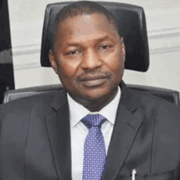

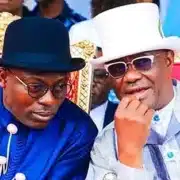
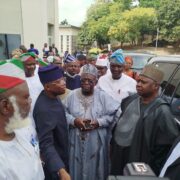
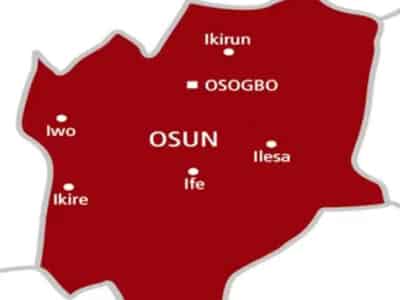
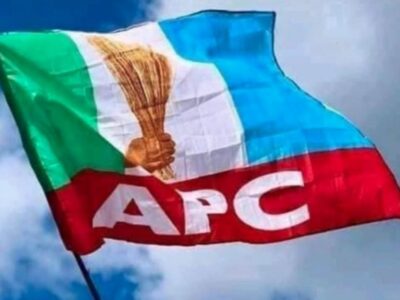
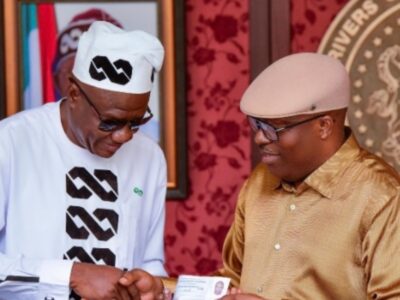
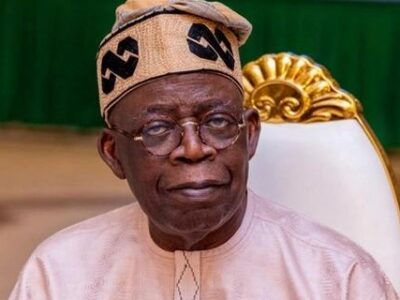









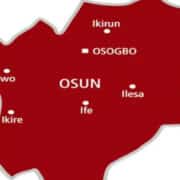
Comments